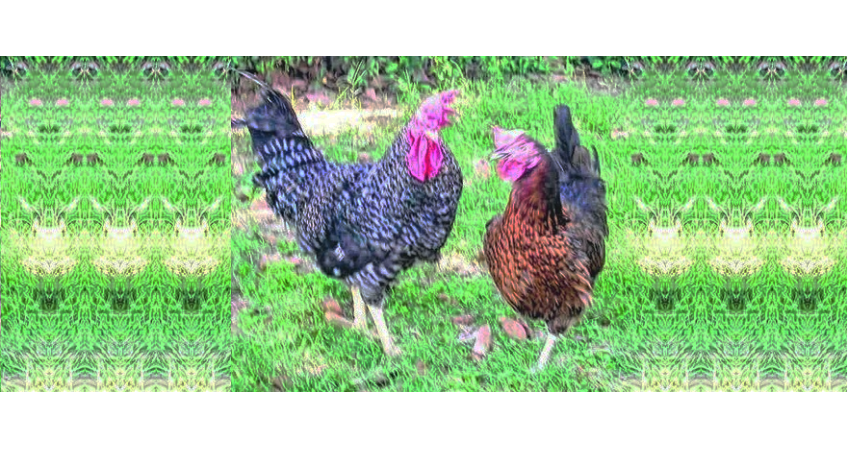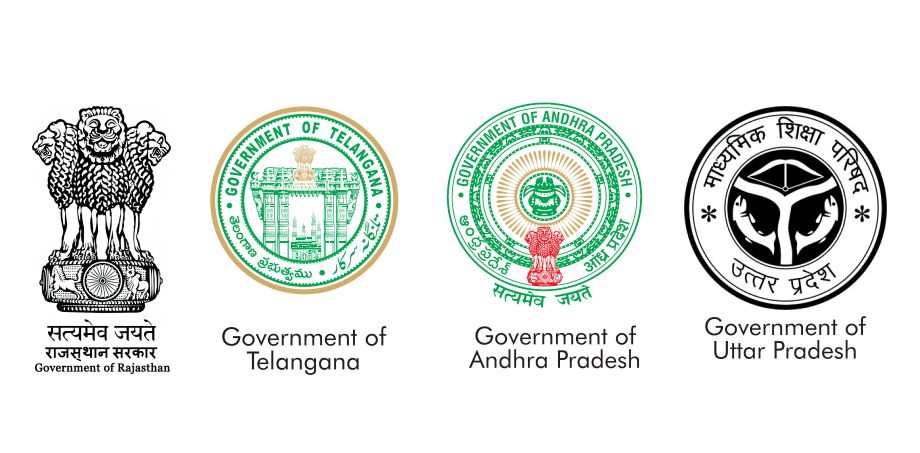Hen to egg on state poultry

Birsa Agricultural University (BAU) today unveiled Jharsim, a new breed of chicken that might just become the state's proverbial goose that lays golden eggs.
BAU scientists have claimed the improved variety of birds combined fast growth with adaptability to the state's environment conditions and would produce more eggs than the normal desi hen to enhance the economic power of poultry among farmers.
While the desi variety lays not more than 50 to 60 eggs in 54 weeks, each Jharsim hen will lay anything between 110 and 130 eggs in 72 weeks.
A crossbreed of desi and broiler varieties, further crossed with the imported Durham Red breed, has produced the Jharsim ('sim' meaning hen in tribal dialect). It took BAU scientists seven years to develop this indigenous variety.
"Poultry is the fastest growing sector in the country and provides jobs to an increasing number of rural and urban youths. To give a big boost to poultry farming, the Indian Council of Agricultural Research has been promoting intensive schemes in five states, Himachal Pradesh, Madhya Pradesh, Assam, Maharashtra and Jharkhand. It is in this context that BAU has come out with an improved poultry breed called Jharsim that would be a big boon for Jharkhand farmers," H. Rahman, New Delhi-based ICAR deputy director-general, said today while unveiling the poultry breed at the Ranchi College of Veterinary Science and Animal Husbandry auditorium in Kanke.
R.N. Chatterjee, director, directorate of poultry research, Hyderabad, pointed out China was the global topper in poultry, contributing 30 per cent of the world's production of meat and eggs while India lagged far behind, contributing barely 5 to 7 per cent.
"Jharsim can help boost production of meat and eggs in a big way," he added.
"There is immense potential of backyard poultry farming in Jharkhand's rural areas. It was possible for BAU scientists to develop the new Jharsim breed only with help of continuous feedback from farmers across the state," BAU vice chancellor George John told the gathering.
A book titled Growth and Development of Jharkhand Agriculture and Allied Sectors, written by R.K. Mishra, BAU's retired project director, was also released by ICAR deputy director-general Rahman.
Source : www.telegraphindia.com
BAU scientists have claimed the improved variety of birds combined fast growth with adaptability to the state's environment conditions and would produce more eggs than the normal desi hen to enhance the economic power of poultry among farmers.
While the desi variety lays not more than 50 to 60 eggs in 54 weeks, each Jharsim hen will lay anything between 110 and 130 eggs in 72 weeks.
A crossbreed of desi and broiler varieties, further crossed with the imported Durham Red breed, has produced the Jharsim ('sim' meaning hen in tribal dialect). It took BAU scientists seven years to develop this indigenous variety.
"Poultry is the fastest growing sector in the country and provides jobs to an increasing number of rural and urban youths. To give a big boost to poultry farming, the Indian Council of Agricultural Research has been promoting intensive schemes in five states, Himachal Pradesh, Madhya Pradesh, Assam, Maharashtra and Jharkhand. It is in this context that BAU has come out with an improved poultry breed called Jharsim that would be a big boon for Jharkhand farmers," H. Rahman, New Delhi-based ICAR deputy director-general, said today while unveiling the poultry breed at the Ranchi College of Veterinary Science and Animal Husbandry auditorium in Kanke.
R.N. Chatterjee, director, directorate of poultry research, Hyderabad, pointed out China was the global topper in poultry, contributing 30 per cent of the world's production of meat and eggs while India lagged far behind, contributing barely 5 to 7 per cent.
"Jharsim can help boost production of meat and eggs in a big way," he added.
"There is immense potential of backyard poultry farming in Jharkhand's rural areas. It was possible for BAU scientists to develop the new Jharsim breed only with help of continuous feedback from farmers across the state," BAU vice chancellor George John told the gathering.
A book titled Growth and Development of Jharkhand Agriculture and Allied Sectors, written by R.K. Mishra, BAU's retired project director, was also released by ICAR deputy director-general Rahman.
Source : www.telegraphindia.com















